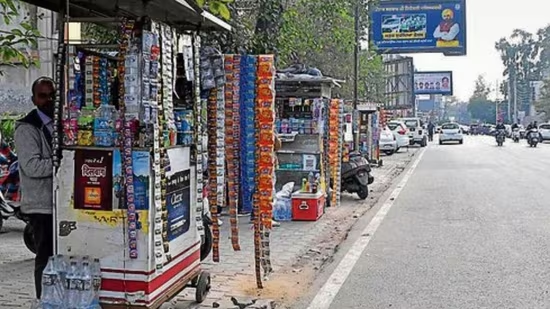
Delhi Government
In a significant push toward creating a healthier and safer environment for students, the Delhi government has called for an immediate and strict ban on the sale of tobacco products near educational institutions. The initiative, spearheaded by Delhi Health Minister Saurabh Bharadwaj, aims to address growing concerns about the easy accessibility of harmful tobacco products to minors.
During a recent meeting with senior officials from the health and education departments, Minister Bharadwaj emphasized the urgent need to implement and enforce the Cigarettes and Other Tobacco Products Act (COTPA), 2003. This central legislation prohibits the sale of tobacco products within 100 yards of educational institutions. However, the ground reality often tells a different story, with many shops and vendors openly violating the law.
A Call for Coordinated Action
The health minister has instructed district magistrates and municipal authorities to carry out special drives to identify and remove shops illegally selling tobacco near schools and colleges. He also requested the Delhi Police to take strict punitive action against violators.
“This is about protecting the future of our children,” said Bharadwaj. “Educational institutions should be tobacco-free zones. We cannot allow shops selling cigarettes, gutkha, or other harmful substances to operate near schools. It sends the wrong message to our youth and encourages early addiction.”
He further added that the fight against tobacco requires coordinated efforts from multiple departments—health, education, police, and municipal corporations. The minister has directed officials to submit regular reports on enforcement measures and results.
The Dangers of Easy Access
The accessibility of tobacco products to minors is a serious public health concern. According to several studies, the earlier a person starts using tobacco, the more likely they are to become addicted and face severe health consequences later in life. The World Health Organization (WHO) has stated that nearly 80% of adult smokers start smoking before the age of 18.
In Delhi, surveys have shown that students often have access to cigarettes, bidis, chewing tobacco, and even e-cigarettes from nearby shops. Vendors seldom check the age of buyers, and in many cases, single sticks are sold, making it even easier for children to purchase them.
“Children are impressionable. If they see adults or even other students smoking or chewing tobacco near school premises, they are more likely to experiment themselves,” said Dr. Rajiv Malhotra, a public health expert based in Delhi. “The government’s move is commendable, but it must be backed by regular monitoring and community support.”
Enforcement Challenges
While the law exists, enforcement remains a major challenge. Vendors often flout rules either out of ignorance or because they are not penalized. In many parts of Delhi, small kiosks and paan shops operate openly near schools, sometimes even within 50 yards of the premises.
Activists have long pointed out that enforcement agencies tend to overlook such violations. The lack of awareness among shopkeepers and poor monitoring mechanisms have rendered many of the anti-tobacco laws ineffective.
To address these gaps, the Delhi government is planning awareness campaigns targeting both the public and vendors. Training sessions for enforcement officers and school authorities are also on the cards, so that everyone involved understands the provisions of the law and the importance of compliance.
Schools to Play a Role
Schools and colleges have been urged to take proactive measures in supporting the campaign. The education department will soon circulate fresh guidelines asking school principals to report any nearby shops selling tobacco and to conduct anti-tobacco awareness sessions for students.
Moreover, school premises are expected to display clear signage indicating that the sale of tobacco within 100 yards is prohibited. Institutions are also being encouraged to set up student health clubs that can raise awareness about the dangers of tobacco.
A Healthier Future
Delhi’s latest crackdown is a step in the right direction toward protecting its younger population from the harmful grip of tobacco. While laws like COTPA are already in place, it is the on-ground implementation and community involvement that will determine the success of this initiative.
As Minister Bharadwaj aptly stated, “Our students deserve a healthy environment to learn and grow. This is a collective responsibility—not just of the government, but of every citizen.”
If implemented effectively, this campaign can set a precedent for other cities in India to follow, creating tobacco-free zones around educational institutions and ensuring a safer, healthier future for the youth.
Thanks For Reading